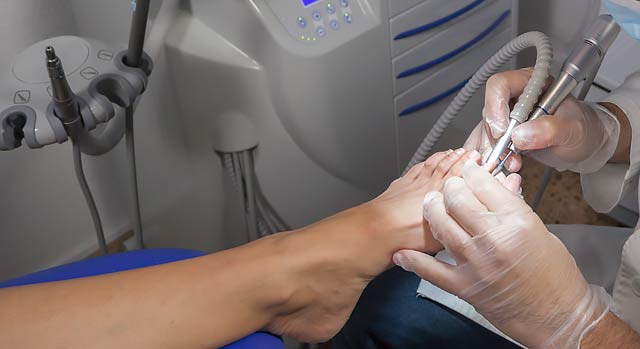Tips for Keeping Your Feet Healthy
Because of poor circulation and nerve damage to the feet, those with diabetes are more likely to develop infections even from a minor foot injury. Foot ulcers are a common and costly complication of diabetes. When left untreated, foot ulcers can lead to infection, gangrene and lower limb amputation. According to the Centers for Disease Control, more than 60 percent of non-traumatic lower-limb amputations occur in those with diabetes.
Through self-examination and proper foot care, those with diabetes can dramatically reduce their risk of amputation and lead healthy, active lives. It's also important to involve your doctor in your foot care. On each visit, ask your doctor to examine your feet for abnormalities. They should also check the sensitivity of your feet and take a pulse reading at least once a year.
If you have diabetic foot ulcers and other wounds, the specialists at the TMC Center for Wound Healing and Hyperbaric Medicine can help.
TMC Center for Wound Healing and Hyperbaric Medicine
Caring For Your Feet and Toenails
- Check your feet for cuts, sores, blisters, or areas of irritation. If you have any concerns call your foot specialist or see your podiatrist or internist.
- Wash and dry your feet, particularly between your toes.
- Protect your feet from extreme hot and cold temperatures.
- Avoid walking barefoot.
- Trim your nails straight across, do not cut into the corners of your toes.
- If you cannot see well or if your toenails are thick or yellowed, have a certified diabetic foot specialist or a podiatrist trim them.
- Do not use acid corn or callus removers or cut your corns or calluses.

